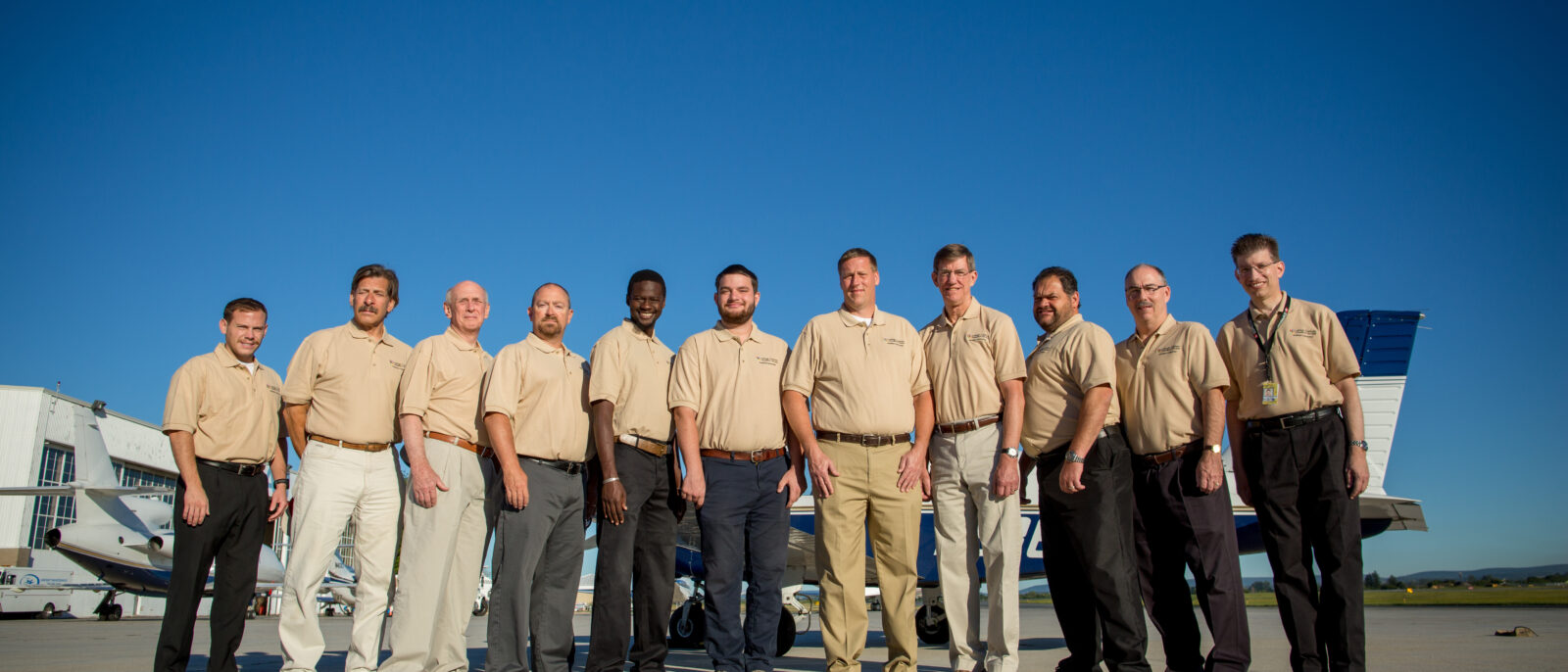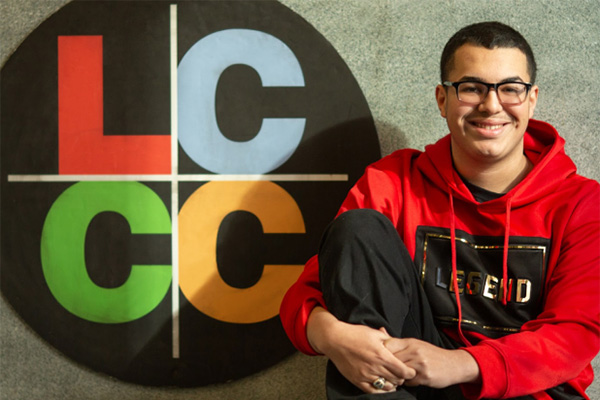LCCC’s New Aviation Program

Students looking to “take flight” in a new career can literally do so with LCCC’s revamped Professional Pilot A.A.S. Program. Although the college has had an aviation program for a number of years, there have been some big changes to the curriculum, including partnerships with major airlines, which mean even more rewarding career opportunities for students.
The new program is more streamlined and convenient for students, explains chief flight instructor Aram Basmadjian. The Federal Aviation Administration (FAA) requires a certain number of flight instruction and ground instruction hours. “In the past, students would complete their ground instruction through LCCC’s FAA ground school, then transfer their hours to a partner’s flight school,” Basmadjian explains. “Earlier this year the FAA approved the college to be a full flight school, so we now offer both ground and flight instruction.” Basmadjian says that the change allows students’ training to be more seamless than before. “Since they’re doing both parts of their training in-house, there’s more synergy,” he says. “For example, students will learn in the classroom how to plan a cross-country flight, then they can get in the airplane and actually do it. We can now address challenges that the students have in their flight training; previously, we had no way of knowing what was going on.” There are typically 25 to 40 students enrolled in the program at any given time, so the relatively small class size allows for more direct student/instructor interaction.
The new program has other practical benefits, as well: “It’s more structured now, so students are saving money,” he says. “In the previous program, when a student would transfer their hours from a ground school, the FAA wouldn’t allow them to transfer all of their hours, but now they can. It’s more efficient and less costly for the student.” Each student who completes the program will earn a commercial pilot certificate with instrument rating and a certified flight instructor certificate along with an associate degree as a professional pilot. In order to fly as a professional pilot, the student must earn a number of different licenses, all of which build on each other. The minimum FAA requirement for a professional pilot license is 35 hours of ground training and 35 hours of flight training; instrument rating license, 30 hours of ground and 35 hours of flight; single-engine commercial pilot certificate, 35 hours of ground and 120 hours of flight; multi-engine commercial pilot certificate (an elective course open to single-engine commercial pilots looking to “add” privileges to their license but not required for the A.A.S. degree), 15 hours of ground and 10 hours of flight. Finally, the certified flight instructor authorizes the student to provide flight instruction and trains new students to learn how to fly. This requires a minimum of 40 hours of ground training and 25 hours of flight. Potential career paths for graduates include flight instructor, charter or corporate pilot; they can also continue their education and earn a bachelor’s degree in aviation science.
The program is still based out of Lehigh Valley International Airport, and new faculty and staff have been added.
Basmadjian notes. “We have instructors from regional airlines who are flying with us. We’re trying to step it up quite a bit.” The faculty’s diverse professional experience provides students with a wide range of perspectives on real-life scenarios. Basmadjian’s own background includes 30 years in the aviation industry, including flying for a large regional airline and working as a flight instructor off and on for 20 years.
The college’s recent partnership agreement with ExpressJet Airlines (which is affiliated with American Airlines, Delta Airlines, and United Airlines) is another exciting benefit of the new program. “The airlines pathway program provides a way for our students to go from the training environment to working for ExpressJet,” Basmadjian explains. “They’re available for early interviews once they complete their instrument rating, usually in the second semester, which leads to a conditional job offer. The student is also assigned a mentor who is a current ExpressJet pilot.” Students have to meet certain criteria to be considered for the ExpressJet interviews. “They have to maintain a 3.0 GPA. Once they graduate with the degree they typically won’t have the minimum number of hours required to be a professional pilot, so many of them will flight instruct in order to get hours,” Basmadjian says. “Before you work for an airline you must have an Airline Transport Pilot Certificate, or ATPC [the highest grade certificate given by the FAA]. The FAA requires that you have 1,500 hours of flight experience before they qualify for this certificate. They graduate from our program with about 200 to 250 hours of flight experience and will work as a flight instructor so they can accumulate more hours. Once they have the 1,500 hours they can work for ExpressJet, which is a new development for LCCC.” Students who complete their flight training at LCCC can qualify for their ATPC certificate for 1,250 hours instead of 1,500. “This is due to the authority we just received from the FAA, which says our program meets a number of their stringent requirements,” he says. ExpressJet is the only regional airline that offers career pathways to larger airlines like United and JetBlue.
Basmadjian says it’s a perfect time to get into the aviation field.

